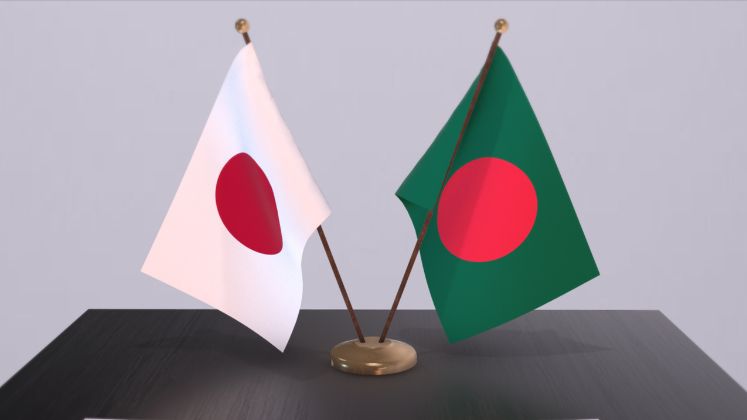
Bangladesh has witnessed a steady increase in Japanese foreign direct investment (FDI) over the past decade, with over 350 Japanese companies now operating in the country, nearly three times the number from ten years ago. Despite this positive trend, experts warn that Bangladesh has significant potential to attract even more Japanese investment, provided it addresses key challenges related to policies, infrastructure, and regulatory stability.
Tareq Rafi Bhuiyan Jun, president of the Japan-Bangladesh Chamber of Commerce and Industry (JBCCI), highlighted the progress while emphasising the need for further reforms. “Many Japanese companies are still in a wait-and-see mode due to recurring uncertainties in policy and regulation,” Jun stated. He noted that Japanese firms are particularly interested in sectors such as light engineering, logistics, IT services, infrastructure, and manufacturing, but remain cautious about Bangladesh’s investment climate.
Jun pointed out that Bangladesh faces stiff competition from countries like Vietnam, Indonesia, and India, where policies, timelines, and ease of doing business are often more favourable. “While there is promising infrastructure development, such as the Bangladesh Special Economic Zone in Araihazar, a joint venture between Sumitomo Corporation and the Bangladesh Economic Zones Authority (BEZA), the pace of such projects must accelerate with consistent policy backing,” he said.
The Araihazar zone, which hosts companies like Singer, Art Nature, Lion Corporation, and IRIS, boasts world-class infrastructure that inspires confidence among Japanese investors. However, Jun stressed that a single zone is insufficient. “We need more of these developments, supported by stable policies and reforms that reduce uncertainties,” he added.
Policy stability remains a critical concern. Jun emphasised that unpredictable changes, such as tax law revisions, customs delays, and overlapping regulations, undermine investor confidence. Japanese companies frequently face long port delays, inconsistent customs assessments, and complex procedures, especially when importing high-precision machinery and perishable components. Jun called for urgent reforms, including digitizing customs clearance and limiting discretionary powers at checkpoints, and appreciated government initiatives like the Bangladesh Single Window (BSW) and the Authorized Economic Operator (AEO) schemes.
Additionally, Jun highlighted the importance of creating a level playing field. While Japanese firms adhere to high standards concerning labor, safety, and environmental regulations, local companies often cut corners, creating unfair competition. He urged the government to incentivize responsible business practices to ensure that compliance does not become a barrier to investment.
To attract targeted Japanese investment, Jun recommended developing sector-specific roadmaps that clearly outline requirements for infrastructure, power stability, and certifications, ensuring investors have the visibility needed for long-term planning. He underscored the significance of continuous public-private dialogue, citing the Japan-Bangladesh Public-Private Economic Dialogue (PPED) as a vital platform for addressing investor concerns and translating discussions into concrete policy actions.






